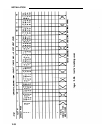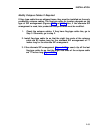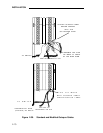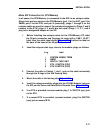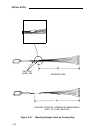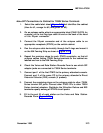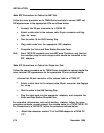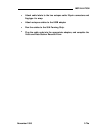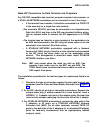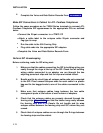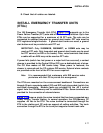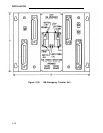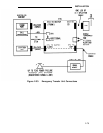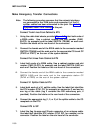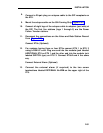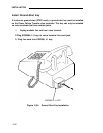
INSTALLATION
Make SIP Connections for Data Terminals and Computers
Any RS-232C compatible data terminal, personal computer host computer, or
a STAR LAN NETWORK workstation can be connected in one of four ways:
●
If the terminal has a modem, it should be connected to a ZTN78 CP
in the same way as a single-line voice terminal.
● The terminal’s RS-232C port may be connected to an Asynchronous
Data Unit (ADU) and then to the SIP over standard building wiring.
Use an octopus cable to connect the SIP appearance to a TN726
CP.
● The terminal may be linked to a voice terminal at the workstation via
an ADU and connected to the SIP using the same cable run as the
associated voice terminal. (See Note below.)
●
A STARLAN NETWORK workstation equipped with a Network
Access Unit (NAU) may be linked to a voice terminal and connected
to the SIP using the same cable run as the associated voice
terminal.
This arrangement is described under Install STARLAN
NETWORK Interface. (see Note.)
Note:
MET sets cannot share the cable run with an ADU. Use
separate 4-pair cable runs for the MET set and ADU. The
7300H Series voice terminals that share a cable run with an
ADU require local power.
The installation procedure for the last two types of connections listed is as
follows:
1.
Determine the type of connection required for each data terminal and
computer from the Voice and Data Station Records Form (Figure 2-
26).
2. At the SIP, identify all wiring for voice/data connections. Remove the
octopus cable plug (if already inserted for a voice terminal). Insert a
WP90851, L1 Y adapter into each of the adapter jacks. Re-insert the
(voice circuit) octopus cable plug into the voice side of the Y adapter.
3. For STARLAN NETWORK workstations, connect the data side of the
Y adapters to IN jacks on a STARLAN NETWORK Network
Extension Unit (NEU). For all other terminals, connect TN726 CP
ports to the data side of the Y adapters (or to standard SIP adapter
jacks for data-only connections) with an appropriately labeled
octopus cable.
2-75



